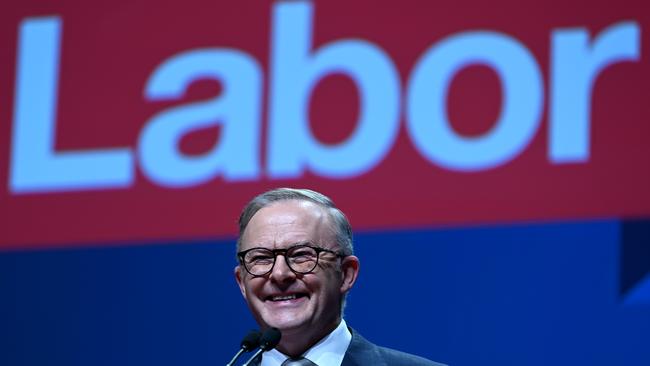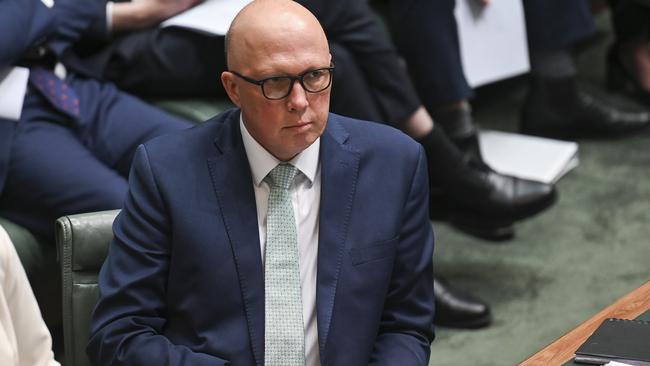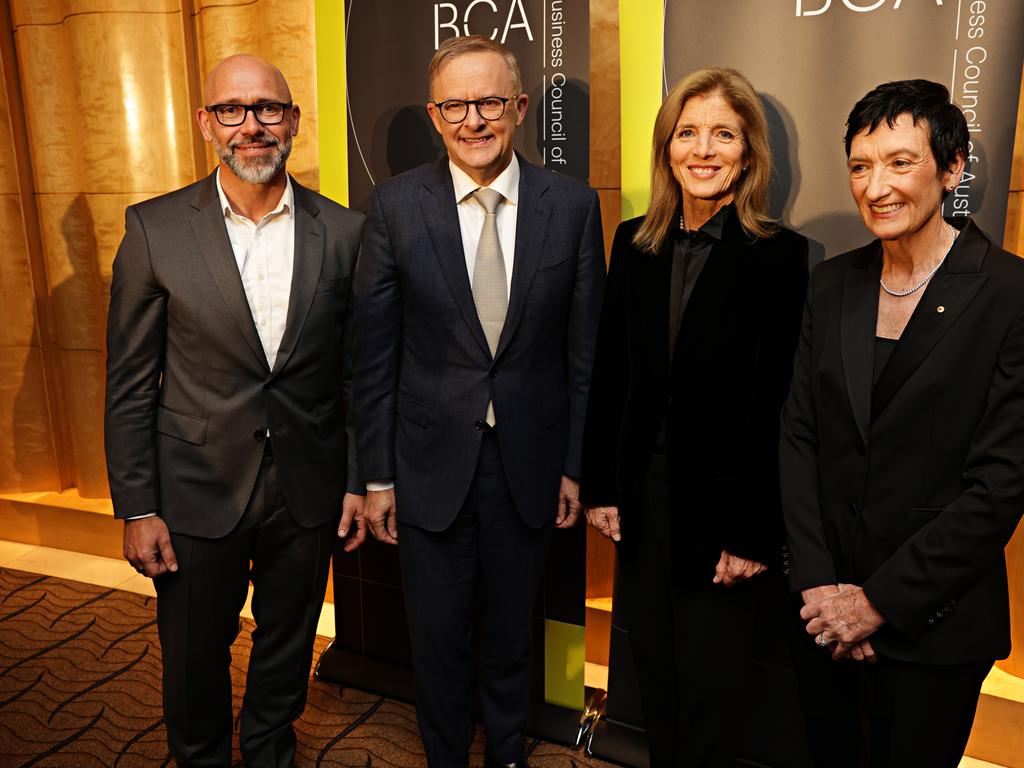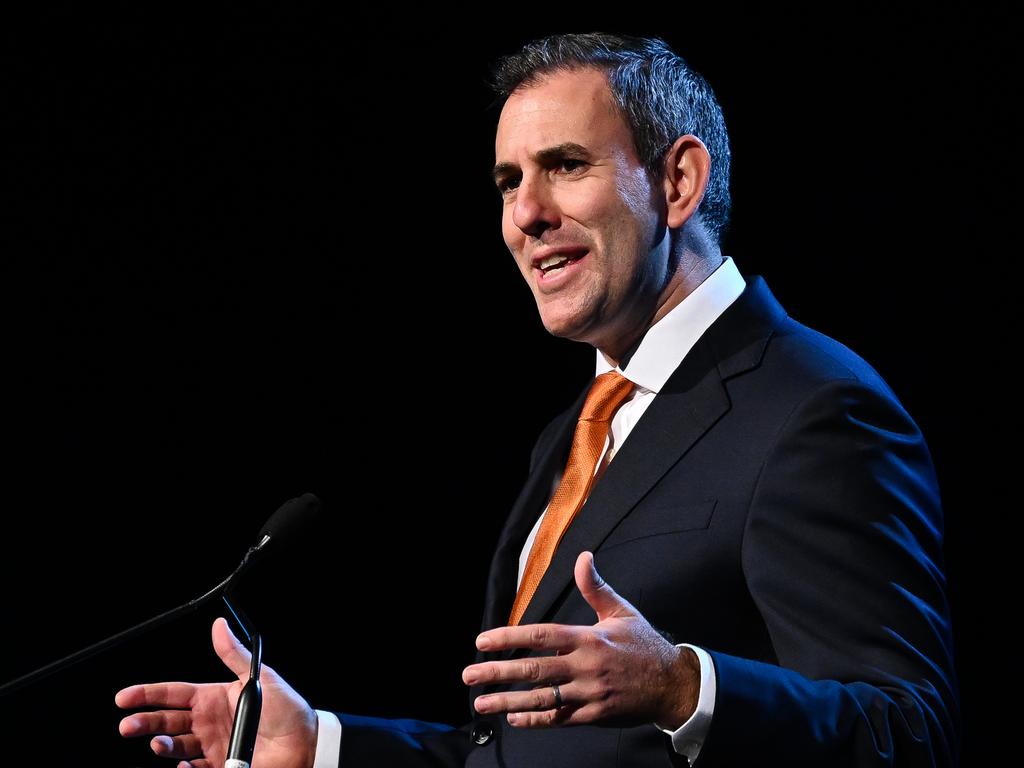
Australia cannot escape the consequences of the polycrisis of maladies, America’s war-scale industrial protectionism in clean-green trimming and, most tellingly, our homegrown stupor that manifests itself in entitlement, stagnation, culture-war trivialities and political dysfunction.
After Covid lockdowns, after China’s failed coercion, after high inflation, we regress to old habits and settings at our peril.
The Business Council’s reform agenda is an end-to-end manifesto, polished and complete, as you’d expect from a group that has deep pockets and the heft of the nation’s alpha CEOs.
There’s little that’s truly bold; anyone that labels this class-war, scorched-earth or free-market ideology was not present or ignores the audacity of the reform era.
This plan makes you wonder why the alleged parties of enterprise in our political system cannot muster such a coherent body of work, or build a narrative around an ethos of national revival and ambition, rather than grievance.
The critique of our woes is spot-on and the understanding of the global context is sophisticated.
Naturally, it taps into the zeitgeist for intervention, while lining up for the “free money” from governments it has spawned, and shamelessly becomes a party to the fiscal risks of old-school protection that will inevitably flow.
Surely our polity – a fancy word for the organised mud wrestling among elected representatives, capital and labour lobbies, community groups and media platform hoggers – can cope with a low-risk policy makeover that is less grand than what we’ve achieved in the past.
But the BCA also needs a dose of self awareness in its gigantic survey, with a few deep holes emerging in its advocacy.
The slump in investment does not simply reflect the regulatory environment and union veto; a few notable performers aside, our companies are way behind the global frontier on innovation.
Too many of our corporate big fish are not fit for international competition, and have become fat off the spoils of lobbying governments, clipping tickets and gobbling up competitors.
Labour has been relatively cheap and so Big Capitalism has been more small “c” in recent years. Amid a cost of living crisis, Labor is looking to reinvigorate competition policy. Watch that space and don’t be put off by the overuse of the term “dynamism”.
It means some “creative destruction”, with the laggards consigned to the dustbin and the young stars, who create and refresh, not held back to crack the big time. That means more competition, companies working smarter and harder for your dollar to turn a profit, with no scope for price gouging or collusion. So there will be more customer protections and greater powers at the macro and micro level for watch dogs like the competition regulator.
Voters are also consumers, and the party that gets this quickly will reap the electoral benefits.
But the pay-off for dynamism, inevitably, is a reduction in security for workers.
Not a weaker social safety net, of course, but a more flexible workplace so that employers and workers can negotiate pay, conditions and how the job is done, leading to better returns on capital, more innovation and products that people, no matter where they live, want to buy.
You could characterise some of the BCA’s big-ticket proposals as: never-ever (raising the GST, reducing union power under Labor); maybe (cutting personal and company tax rates); and already under way (speeding up project approvals, strategic industry policy, green energy subsidies).
The BCA accepts that some of this agenda is being implemented by governments but it is poorly co-ordinated and sequenced.
Action, such as it is, is not well communicated to the public as a story of national prosperity, our major political shows stumbling from election to election, with ever-narrowing support bases.

There’s plenty here for Peter Dutton to run with, as the proposals are laden with broad-church Liberal values, such as income and wealth aspiration, reward for toil and thrift, security, freedom and conservation.
As prominent thinkers and officials have explained, there are many good ideas out there: we just need our political system to reach consensus to get them done. We’ve been living large off booming prices for our major exports, migration and China’s fortuitous helping hand.
Amid the cost of living crunch, many voters are simply putting one foot in front of the other.
But these issues will pass and, as the game clock ticks on, the country and its leaders will wake to the grim horror brewing for decades.
Even after all the missteps and wrong turns, we can still choose not to become a more wasteful, indebted and bitter nation, that’s older, flabbier and poorer, because it collectively blew its fabled inheritance by being timid.








As Anthony Albanese tramples the litter of talking points from the tribe’s Conferenceville theatre to build an agenda for a second term, and asks comrades to dream of a third, the big business lobby has picked its moment to shake things up in policy land.